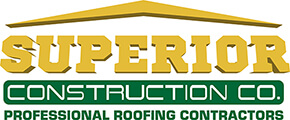Your roof is exposed to the elements all the time. The sun’s heat, debris, small animals and moisture in different forms. Most homeowners know that rain can cause problems if the roof is not healthy, but did you know that moisture can be present in three forms and all of them can cause damage to your roof?

Residential and commercial roofing contractors should know more about these matters.
Solid, Liquid, Gas
The types of moisture present in your area depend on the type of climate in that location. Some homes are located in very hot and humid climates, while others are exposed to cold and dry. Depending on where you are, your home might experience moisture in any of these forms:
Solid – In cold regions, ice and snow are the common forms of moisture. Did you know that when water freezes, it expands by up to 10%? If a material is not sturdy enough, water can damage or pry it loose as it turns to ice. The most common form of ice that you can find on your roof is ice dam formation.
Ice dams typically form when your attic is too hot due to a lack of ventilation. As heat rises, it gets trapped in your attic, with the top portion being the hottest. That’s why snow melts faster at the top of your roof. As it flows down to the edges, which are colder, the water freezes, forming dams. Ice dams are destructive because they prevent natural water flow. They trap water and force it to back up, so it can enter your roof from underneath the roofing materials.
Liquid – Rain is the liquid form of moisture. A roof that has not been maintained properly by experienced residential roofing contractors offers little resistance to strong rains. Rainwater falls on your roof, bounces upward and moves in different directions, which can cause leaks. If your gutter system is clogged, strong rains can damage your roof even further.
Gas – This is the form of moisture called moisture vapor. As this is basically the microscopic droplets of water suspended in the air, it can move through the tiniest of openings as it is carried by air currents. Daily activities like cooking, bathing and washing clothes add to moisture vapor. This raises humidity levels indoors.
Your roof deck can get inundated with moisture, causing it to expand. If there is enough moisture, shingles can get damaged.
Movement of Moisture
Moisture moves in different directions due to several forces:
Gravity – Gravity is responsible for the downward movement of moisture, as in the form of rain. It helps your roof get rid of moisture, but if there is damage on your roof, such as a puncture, gravity is also responsible for forcing water through that damage.
Gradients – This is what you call the movement of matter across an area of difference. Thermal gradient, for example, forces moisture to move from a warm location to a colder area. If moisture is present on your roof, its tendency is to move toward your air-conditioned home interior.
Pressure gradient describes how moisture moves from high to low-pressure areas, as in the case of moisture vapor. Pushing indoor air to the outside causes indoor air pressure to be lower. That means moisture will try to find its way to the interior of your home. Exhaust fans and combustion systems can push indoor air out.
Concentration gradient refers to the tendency of moisture in high-concentration areas to find low-concentration areas. This is why water naturally moves to dry areas.
Moisture Damage
By understanding more about how moisture behaves, you can have better knowledge about how it can damage your roofing system. Moisture-related damage is not always easily observable, but you can look out for a few simple signs.
Absorption – Some materials absorb moisture. Drywall, which is a popular ceiling material, is granular. When it absorbs moisture, it loses strength, causing it to sag. Wood, which is cellulose-based, can rot or decay. Stains are also common where moisture damage is already present.
Corrosion – The metal parts of your roof, such as flashings, connectors, fasteners, etc. can also be damaged by moisture in the form of corrosion, which reduces the strength, affects aesthetics and eventually breaks the material.
Roof maintenance is crucial in preventing moisture damage. Google “residential roofing contractors near me” and talk to a professional about it. Get in touch with Superior Construction Co. by calling (978) 807-1401 or by filling out this form.
